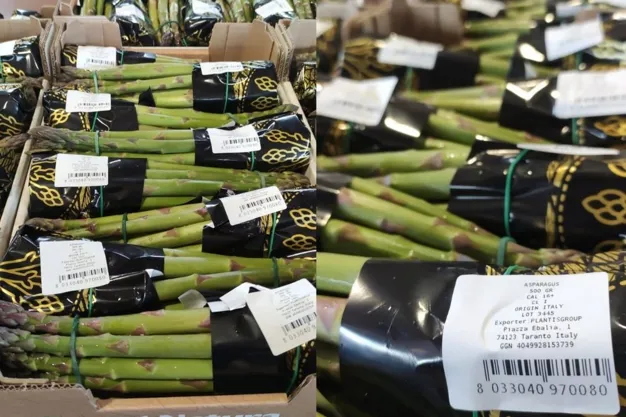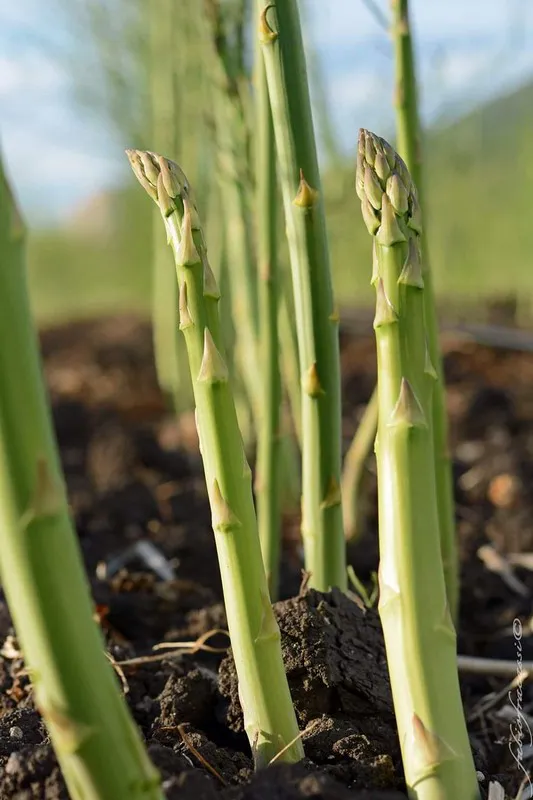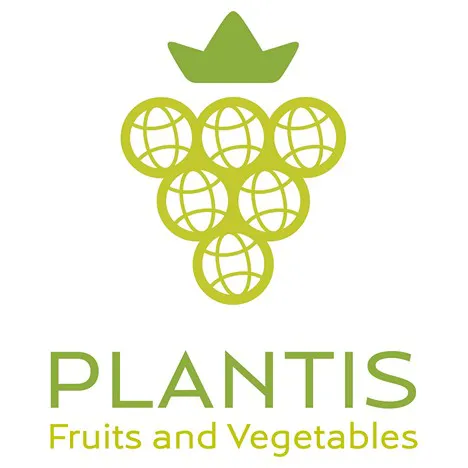The Plantis Group, an Apulian company that exports Italian fruit and vegetables to many European markets, started the new asparagus campaign about 10 days ago. However, given the current volumes and prices compared to last season, the commercial start is not entirely encouraging.

"It's still early days for us," said Claudio D'Alba. "There are only a handful of turions that are available and that are ready to be harvested. What is destabilizing the market and not helping sales is the presence of overseas produce (mainly from Mexico), still widely available on European shelves and sold at much lower prices (around 35-40% less). In addition, Spanish crops are available a few days earlier than ours. Compared to the same period in 2023, we are seeing a drop in export volumes of around 10%, with a similar decline in prices."
Asparagus is an important seasonal crop that the Plantis Group sells in large quantities, usually between the first ten days of April and late May, in bundles of 250g and 500g in wooden or cardboard trays.
usually between the first ten days of April and late May, in bundles of 250g and 500g in wooden or cardboard trays.
"We send most of our orders to the Baltic and Scandinavian countries," continues the manager, "but we are still a long way from the 15 pallets a week we shipped in the same period last year. We are looking forward to the peak of the 2024 campaign in about two weeks' time. Although the Italian product is still very much appreciated, operators are waiting for more competitive prices, a reduction in imports from non-EU countries and a slowdown in the Spanish supply before they can increase deliveries in order to improve the competitiveness of the Italian product, especially in a very difficult socio-economic context where fruit and vegetables are still contracted because of the reduction in household purchasing power."
For more information:
Plantis Group 
Piazza Ebalia 1
74123 Taranto - Italy
Tel.: +39 99 4521842
Email: info@plantis.it
www.plantis.it
